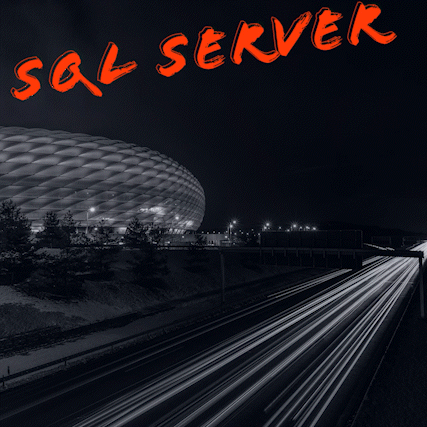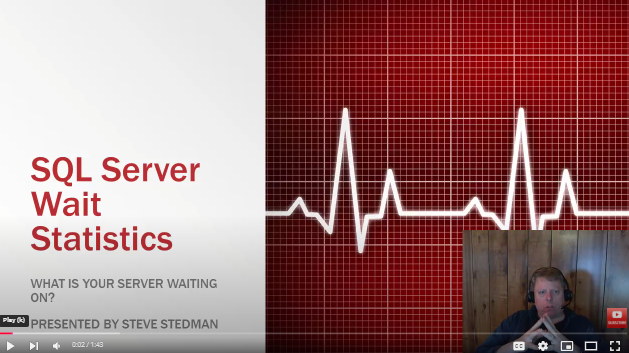Wait statistics, in the context of SQL Server, refer to the amount of time that a query spends waiting to access data in the database. When a client application requests data from the database, the request is placed in a queue and the client application must wait for its turn to access the data. The time that the query spends waiting is called a "wait" and is tracked by SQL Server. This information can be used to identify potential performance bottlenecks and optimize the performance of the database. Wait statistics are commonly used by database administrators to diagnose and troubleshoot performance issues in SQL Server.
SQL Server uses wait types to identify delays and bottlenecks in its operations. The HADR_WORK_POOL wait type is specific to environments using Always On Availability Groups. It occurs when SQL Server is waiting for a worker thread from the HADR (High Availability and Disaster Recovery) work pool. This wait type reflects delays in task scheduling and execution within the Always On environment. In this blog post, we’ll explain what HADR_WORK_POOL means, why it occurs, and how to address it effectively.
What Is the HADR_WORK_POOL Wait Type?
The HADR_WORK_POOL wait type happens when SQL Server’s Always On processes need a worker thread from the HADR work pool, but no threads are immediately available. The HADR work pool is a limited set of threads dedicated to managing tasks like log synchronization, replica health checks, and failover coordination within Availability Groups.
This wait type indicates that SQL Server is experiencing contention for these specialized threads, which can delay synchronization and other high-availability operations.
When Does HADR_WORK_POOL Appear?
This wait type can appear in the following scenarios:
- High Activity Levels – When there are many concurrent Always On tasks, such as log synchronization or failover operations.
- Resource Constraints – When CPU or memory resources are insufficient to efficiently handle HADR tasks.
- Large Log Volumes – In environments with high transaction rates, generating large amounts of log data for synchronization can increase worker thread demand.
- Replica Configuration Issues – Misconfigured replicas or network problems can exacerbate thread contention.
Why HADR_WORK_POOL Waits Matter
While some HADR_WORK_POOL waits are normal in an Always On environment, frequent or prolonged waits can indicate performance issues. These delays can impact the synchronization of replicas, slow down failover processes, and reduce the overall reliability of the Availability Group. Common causes include:
- Limited Worker Threads – An inadequate number of threads in the HADR work pool to handle high workloads.
- CPU Bottlenecks – High CPU usage can limit the ability of SQL Server to process tasks efficiently.
- Log Synchronization Delays – Excessive transaction log generation or slow network connections can overwhelm worker threads.
- Configuration Issues – Incorrect Always On settings or outdated SQL Server versions can reduce performance.
How to Address HADR_WORK_POOL Waits
If you notice excessive HADR_WORK_POOL waits in your Always On environment, here are some strategies to reduce their impact:
- Monitor CPU Usage – Ensure your server has sufficient CPU capacity to handle high workloads. Upgrade hardware if necessary or optimize workloads to reduce CPU demand.
- Optimize Queries and Transactions – Reduce the size and frequency of transactions to lower the volume of log data generated for synchronization.
- Increase Worker Threads – In some cases, adjusting SQL Server’s thread pool settings may help provide more worker threads for HADR tasks.
- Check Network Performance – Ensure that the network connections between replicas are low-latency and high-bandwidth. Dedicated network links for Always On traffic can help reduce contention.
- Review Replica Configuration – Validate that all replicas are properly configured with up-to-date SQL Server versions and optimized settings.
Monitoring HADR_WORK_POOL Waits
To monitor HADR_WORK_POOL waits, use SQL Server’s sys.dm_os_wait_stats to track wait statistics. The Always On Dashboard and dynamic management views like sys.dm_hadr_availability_replica_states can also provide insights into synchronization health and replica performance. Regular monitoring helps you identify and resolve issues before they escalate.
For SQL Server environments with high availability requirements, addressing wait types like HADR_WORK_POOL is critical to maintaining reliable performance. Stedman Solutions offers comprehensive managed services and performance tuning to optimize your SQL Server setup. Our Database Health Monitor tool provides real-time insights into wait types, system health, and resource usage, helping you keep your Always On Availability Groups running efficiently. Contact us today to learn how we can support your SQL Server environment!

Find out more about our SQL Server Managed Services
Applies to
Related Waits
HADR_AG_MUTEXHADR_AR_CRITICAL_SECTION_ENTRY
HADR_AR_MANAGER_MUTEX
HADR_AR_UNLOAD_COMPLETED
HADR_ARCONTROLLER_NOTIFICATIONS_SUBSCRIBER_LIST
HADR_BACKUP_BULK_LOCK
HADR_BACKUP_QUEUE
HADR_CLUSAPI_CALL
HADR_COMPRESSED_CACHE_SYNC
HADR_CONNECTIVITY_INFO
HADR_DATABASE_FLOW_CONTROL
HADR_DATABASE_VERSIONING_STATE
HADR_DATABASE_WAIT_FOR_RESTART
HADR_DATABASE_WAIT_FOR_TRANSITION_TO_VERSIONING
HADR_DB_COMMAND
HADR_DB_OP_COMPLETION_SYNC
HADR_DB_OP_START_SYNC
HADR_DBR_SUBSCRIBER
HADR_DBR_SUBSCRIBER_FILTER_LIST
HADR_DBSEEDING
HADR_DBSEEDING_LIST
HADR_DBSTATECHANGE_SYNC
HADR_FABRIC_CALLBACK
HADR_FILESTREAM_BLOCK_FLUSH
HADR_FILESTREAM_FILE_CLOSE
HADR_FILESTREAM_FILE_REQUEST
HADR_FILESTREAM_IOMGR
HADR_FILESTREAM_MANAGER
HADR_GROUP_COMMIT
HADR_LOGCAPTURE_SYNC
HADR_LOGCAPTURE_WAIT
HADR_LOGPROGRESS_SYNC
HADR_NOTIFICATION_DEQUEUE
HADR_NOTIFICATION_WORKER_EXCLUSIVE_ACCESS
HADR_NOTIFICATION_WORKER_STARTUP_SYNC
HADR_NOTIFICATION_WORKER_TERMINATION_SYNC
HADR_PARTNER_SYNC
HADR_READ_ALL_NETWORKS
HADR_RECOVERY_WAIT_FOR_CONNECTION
HADR_RECOVERY_WAIT_FOR_UNDO
HADR_REPLICAINFO_SYNC
HADR_SYNC_COMMIT
HADR_SYNCHRONIZING_THROTTLE
HADR_TDS_LISTENER_SYNC
HADR_TDS_LISTENER_SYNC_PROCESSING
HADR_TIMER_TASK
HADR_TRANSPORT_DBRLIST
HADR_TRANSPORT_FLOW_CONTROL
HADR_TRANSPORT_SESSION
HADR_WORK_QUEUE
HADR_XRF_STACK_ACCESS
See Also
All Wait Types


